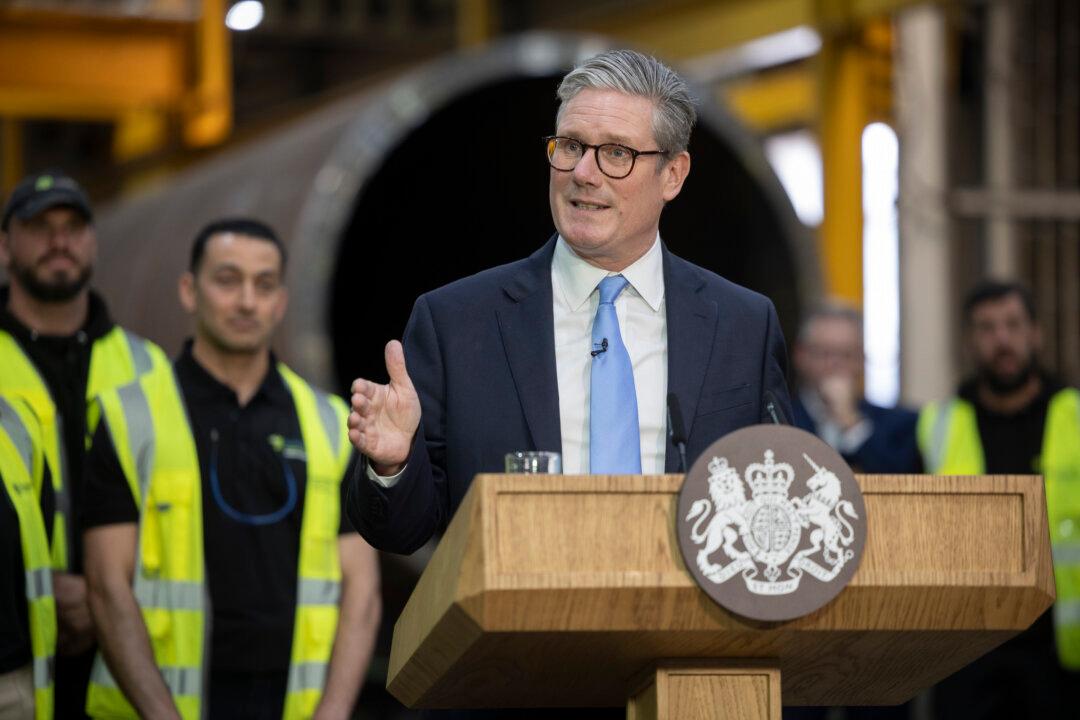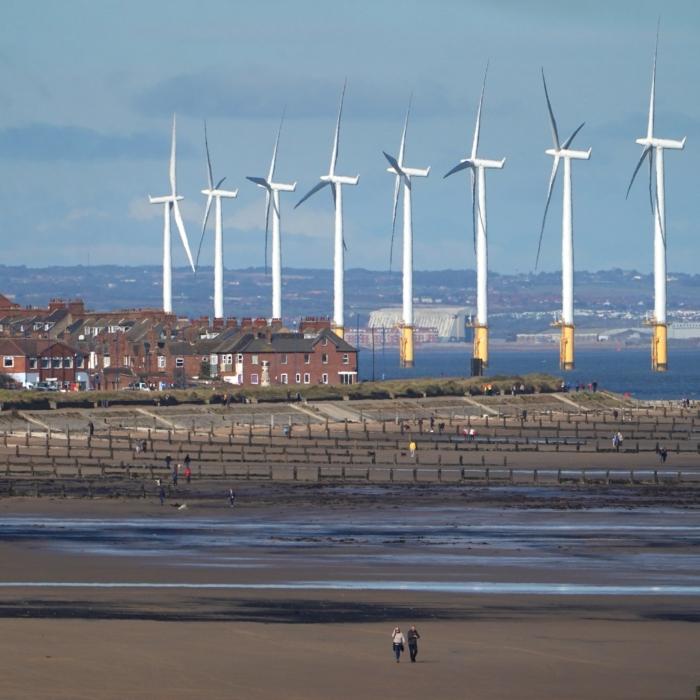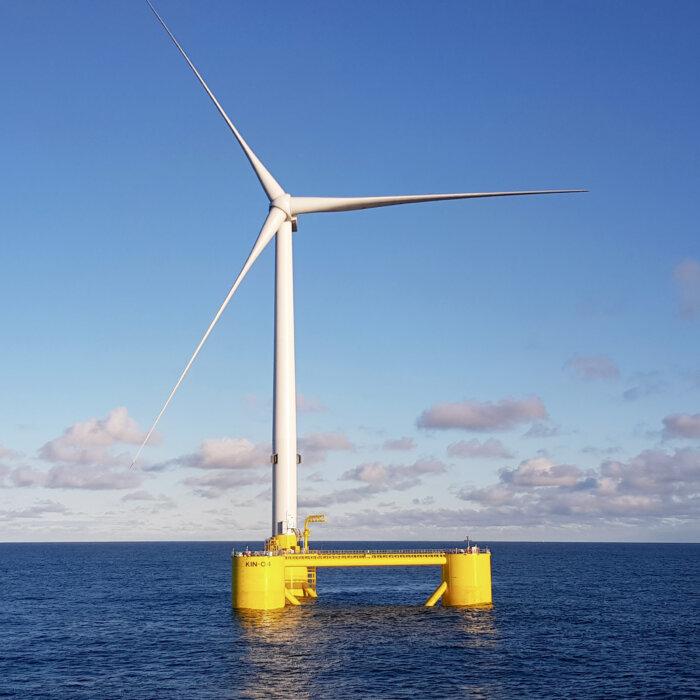Great British Energy will be headquartered in Scotland, Prime Minister Sir Keir Starmer has said as he formally launched the state-owned energy company.
On Thursday, the government introduced to Parliament the Great British Energy Bill, which will enable Great British Energy to be setup, and announced more details of the company as part of Labour’s plan of “making Britain a clean energy superpower by 2030.”
Launching the company in a speech in Runcorn, Cheshire, Sir Keir said “Scotland will lead the clean energy revolution.”
The prime minister also said Great British Energy will partner with the Crown Estate, whose roles include identifying and leasing seabed sites to offshore wind developers, to boost investment in low-carbon projects including floating wind, tidal power, and nuclear.
Juergen Maier, former UK boss of Siemens, has been appointed chairman of Great British Energy, Sir Keir confirmed.
With £8.3 billion promised over this Parliament, the government hopes Great British Energy will “generate energy in its own right” as well as invest in private low-carbon energy projects, Ed Miliband, the secretary of state for energy security and net zero said in the foreword of the company’s founding statement.
He said the company would “accelerate Britain’s pathway to energy independence,” and “create thousands of good jobs, with good wages, across the country.”
Great British Energy: The Crown Estate
To accelerate the development of projects, GB Energy will partner with The Crown Estate, a public corporation that manages real estate, the seabed, and half the foreshore across and around England, Wales, and Northern Ireland.The corporation returns its net profits, including those generated from leasing seabeds to offshore wind farms, to the Treasury.
Under current rules, the Crown Estate cannot use its cash reserves to invest because it must hold them against the prospect of future financial losses.
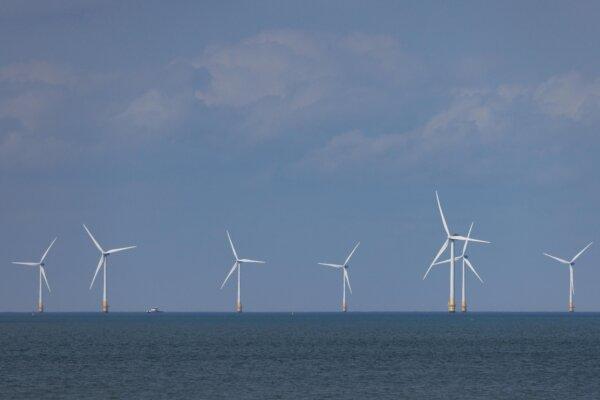
The new partnership will give birth to a new division of The Crown Estate called “Great British Energy: The Crown Estate,” and bring together the investment powers of the two companies.
The Crown Estate estimates that by 2030, the partnership will lead to the leasing of seabed to new offshore wind developments that can generate up to 20 to 30 gigawatts of electricity, which can power the equivalent of almost 20 million homes, the government said.
Sir Keir said in a statement that the agreement will “drive up to £60 billion in investment into the sector, turbocharging our country toward energy security, the next generation of skilled jobs, and lowering bills for families and business.”
The announcements on Thursday come after the Tories cast doubt on a previous Labour pledge to help cut household bills by £300 a year, in part through GB Energy, its flagship green initiative.
Energy Bills
Shadow energy secretary Claire Coutinho said Labour had dropped its claim that its plans could save £300 off energy bills by 2030, saying the public “has been sold a lie.”“Now that they’ve won the election they’ve tried to brush that figure under the carpet, showing us the truth that GB Energy is nothing but a gimmick that will end up costing families, not cutting bills.”
Ms. Coutinho said Great British Energy would mean “funnelling taxpayers’ money into reducing risk for multimillion-pound energy companies” while the 2030 decarbonisaton target “will hike bills and ramp up our dependence on batteries and cables from China.”
“Now they’re saying bills may go up … but the truth is even worse. Labour’s plans for energy are going to mean huge costs for British families,” she said.
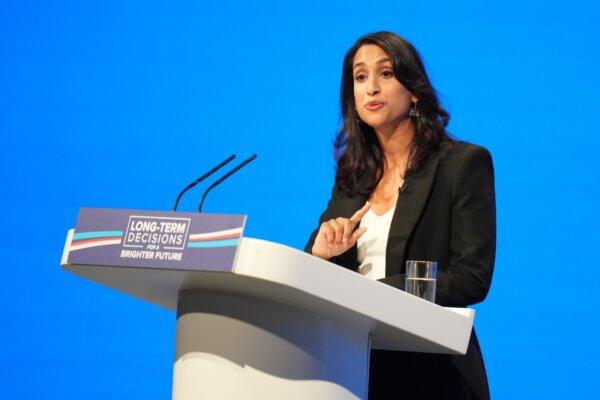
However, Sir Keir later told reporters he stood by the figure during a question-and-answer session.
“That does depend on early firm decisions being made, which is why we’ve set up GB Energy, why we’ve announced the partnership today with the Crown Estate, and why the energy secretary has already taken action in week one in relation to onshore wind, in relation to solar energy and also pushing on with nuclear. So I stand by that commitment.
“What this brings us is lower bills, energy security, the next generation of jobs, and of course an important contribution to our obligations in relation to the planet,” he said.
Earlier in the day, Mr. Miliband told BBC “Breakfast” “it’s going to take time” for Great British Energy to start making money.”
The energy security secretary said he believes the company will start generating returns “within the lifetime of this Parliament” but didn’t give a timeline for when people can expect their bills to go down.
